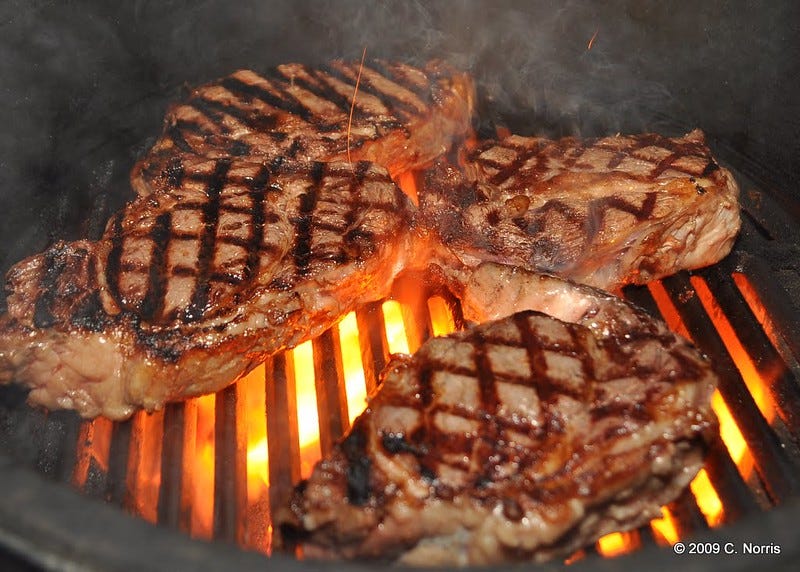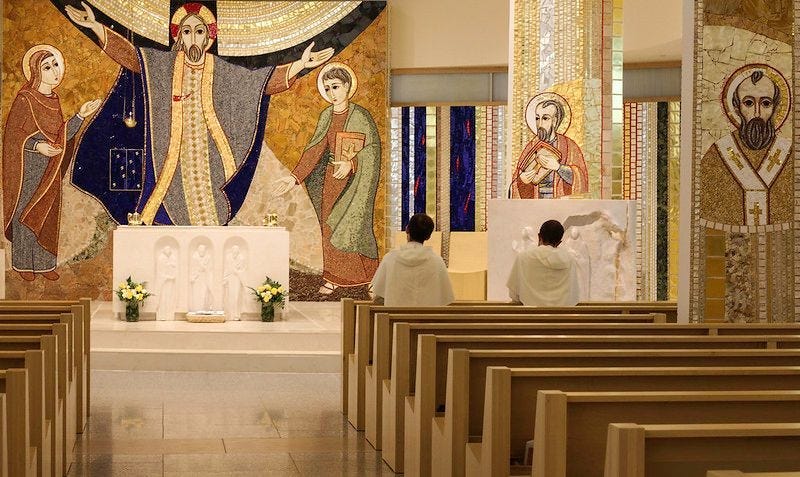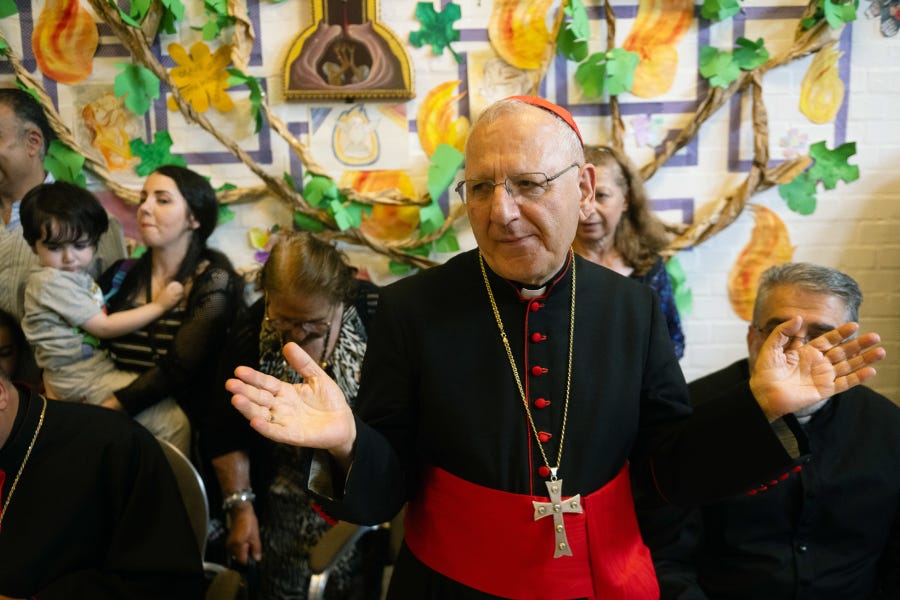The solemnity of the Annunciation of the Lord will fall in 2022 on March 25 — a Friday during Lent.
It is quite clear that Catholics are ordinarily obliged to abstain from meat on Lenten Fridays, but they can eat meat that day, March 25, because of the solemnity.
But there is another Lenten solemnity raising questions this year: the Solemnity of St. Joseph, which falls on Saturday, March 19. Some Catholics have asked whether that solemnity means they can eat meat on, say, Friday night — after the liturgical Solemnity of St. Joseph has begun with first vespers.
Is that true? What does it even mean? Can I eat a burger during March Madness?
The Pillar cuts straight to the bone, to answer your meaty Lenten questions.
What are the usual rules about meat on Lenten Fridays?
Catholics 14 and older are obliged in the U.S. to abstain from meat on Fridays during Lent.
Eastern Catholics are obliged to follow the rules of their own Churches — but if you’re an eastern Catholic and you’re reading this explainer, you probably know your Church’s expectations. So, just understand this explainer will be for Latin Catholics. Sorry.
Ok, so I can eat meat on the Annunciation, Friday, March 25?
We’re very glad to announce that you can. Ha, ha, ha. Anyway…
Abstinence from meat is required in the U.S. during the Fridays of Lent, unless, as canon 1251 explains, “a solemnity should fall on a Friday.”
A solemnity is a feast of the highest order in the Church. The Annunciation is a solemnity, which celebrates the archangel Gabriel announcing to Mary that she would become the Mother of God
Therefore, you can eat meat on Friday, March 25, the Solemnity of the Annunciation.
Easy, right? Yes.
But I heard that maybe we can also eat meat on Friday, March 18? Can we?
Well…it depends on who you ask. And it really depends upon whether you think the notion of a liturgical day overrides the idea of a legal day.
Saturday, March 19 is the Solemnity of St. Joseph.
And liturgically, solemnities begin to be commemorated with evening prayer, or vespers, on the calendar day before — in this case, Evening Prayer I of the Solemnity of St. Joseph takes place in the evening of March 18.
In fact, the Holy See issued in 1969 a directive, “General Norms for the Liturgical Year and the Calendar,” which says that while “the liturgical day runs from midnight to midnight…the observance of Sunday and solemnities begins with the evening of the preceding day.”
That directive helps shape an argument in favor of meat-eating: Solemnities began to be observed the evening before their calendar date, solemnities rescind the obligation of abstinence, and therefore, there is no obligation of abstinence the evening before a solemnity.
The Church’s “Table of Liturgical Days” gives priority to solemnities inscribed in the General Calendar over the weekdays of Lent — lending some support to this position.
In that view, you could abstain from meat until 5 or 6 pm on March 18, and then, with the Solemnity of St. Joseph having begun to be observed, you could have a steak.
—
But before you fire up the grill, there is an argument against eating meat on Friday — and it has at least one American bishop in its corner.
Here’s the deal: Canonists who hold that abstinence extends until midnight on March 18 argue that abstinence is a legal requirement, and that a legal day is not the same as a liturgical day.
Canon law defines a day as a 24-hour period from midnight to midnight, “unless other express provision is expressly made.” Some canonists argue that the defined liturgical observance of a solemnity is not the same as an express legal provision, and thus that Friday night is not the same as Saturday morning.
Archbishop Bernard Hebda of St. Paul and Minneapolis issued a decree last week which seems to affirm that view.
The archbishop dispensed Catholics in his diocese from the obligation of Lenten Friday abstinence if they “have chosen to begin their celebration of Solemnity of Saint Joseph, Husband of Mary on Friday, March 18, 2022, either by praying Evening Prayer I, which is in honor of Saint Joseph, or by participating at an anticipatory Mass of the solemnity on that evening.”
The presupposition of that text is worth noting: In order to dispense from the obligation of abstinence, Hebda implicitly affirms that, in his view the obligation exists. If Hebda is correct, Catholics in other dioceses, who have also not been dispensed, are also obliged to abstinence for the whole of March 18.
If Catholics are not obliged to abstinence once the solemnity begins liturgically, on Friday night, then Hebda’s decree is for naught — it provides a dispensation already granted by the law itself.
But, as it happens, there is another little quirk to the archbishop’s text: read strictly, it seems to dispense from abstinence for the whole of Friday, March 18, for those who intend to attend Mass Friday evening or pray St. Joseph’s evening prayer that night. The archbishop - known as a very sharp canonist - may well have embedded the “Easter Egg” of a meat Friday for those committed to living the Church’s liturgical calendar.
That was all very interesting. So can I have a steak?
We’ve laid out the law, and two readings of it. But to be clear, the celebration of solemnities is marked by different customs around the world, including customs about when the major celebration of a solemnity actually begins — and when the feasting part of the feast should commence.
Since the Church says that custom is the best interpreter of law, taking stock of the customs in a particular place give good indication of how to celebrate the solemnity, including when to fast and when to feast.
And, of course, the instructions of a local bishop on the matter give Catholics clear indication of how to live the fast and feast in their local Church.
So as to what you should actually eat on a Lenten Friday, March 18 — well, send this to your spiritual director if you’d like spiritual guidance. Of course, if in doubt, the pastor of your parish has the power to dispense you individually from days of fasting.
One of us is not so sure. But one of us, at least, will be celebrating St. Joseph with a Friday t-bone — on liturgical Saturday, that is!




